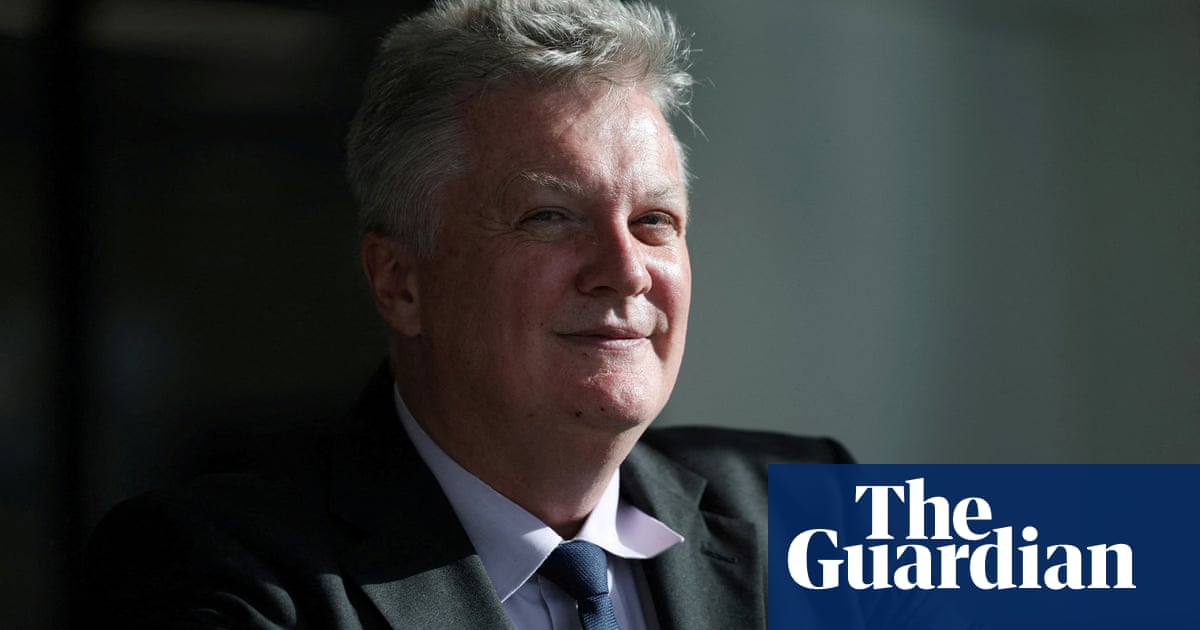Bank of England’s chief economist dampens hopes of summer interest rates cut

The prospects of a summer cut in UK interest rates receded on Tuesday after the Bank of England’s chief economist cautioned against cutting too soon and a key survey signalled the economy strengthened over the last month.
The Bank’s chief economist, Huw Pill, said concerns remained that inflation, which is expected to fall below its 2% target within a few months, could rebound after a recovery in economic growth.
Speaking in London, Pill said: “We still have a reasonable way to go before I am convinced that the persistent momentum in underlying inflation has stabilised at rates consistent with achievement of the 2% inflation target on a sustainable basis.”
After his speech financial markets pushed back expectations that the Bank would start cutting interest rates to September. Earlier in the day an August rate cut had been fully priced in.
His comments came as a closely watched survey of business activity by S&P Global showed a strong performance by the services sector and a rise in job hiring, in signs that businesses were heading into the summer in a buoyant mood.
The flash UK purchasing managers’ index (PMI), which covers the services and manufacturing sectors, rose to 54 in April, up from 52.8 in the previous month. A figure above 50 indicates a period of expansion.
Jonathan Haskel, who sits with Pill on the Bank’s nine-strong monetary policy committee, indicated at a separate event in London on Tuesday that the recovery under way in the UK could delay the first interest rate cut by the central bank.
Haskel said more slack in Britain’s labour market was needed to be confident that inflation would stay at 2%.
“The labour market is central to the inflation aspect,” Haskel said at a seminar at City University of London’s Bayes Business School when asked if he now thought it possible inflation would hold at 2% rather than rise later this year.
He said the number of job vacancies had fallen while unemployment had increased, showing that the labour market was weakening, but it was unclear if it was weakening quickly enough to keep inflation on target.
“Reasonable people might reasonably disagree about the risks,” Haskel said.
Last week the deputy governor, Sir Dave Ramsden, said he thought inflation may stay close to 2%. It is now at 3.2%.
The rise in the PMI’s above estimates by City economists is a double-edged sword for the chancellor, Jeremy Hunt, who would like to see interest rates coming down in an election year.
Chris Williamson, the chief business economist at S&P Global Market Intelligence, said the UK recession in the second half of last year was being left behind, though growth remained modest.
after newsletter promotion
“Early PMI survey data for April indicate that the UK economy’s recovery from recession last year continued to gain momentum,” he added.
“Improved growth in the service sector offset a renewed downturn in manufacturing to propel overall business growth to the fastest for nearly a year, indicating that gross domestic product (GDP) is rising at a quarterly rate of 0.4% after a 0.3% gain in the first quarter.”
Official figures next month covering GDP from January to March are expected to confirm the UK is no longer in recession.
Initial estimates showed the economy shrank slightly in the third and fourth quarters of 2023, indicating a shallow technical recession.
S&P surveys of business activity across the eurozone also gave encouraging economic signals of a broad recovery.
Germany returned to growth in April and France came close to ending a period of contraction, while most other economies in the 20-member bloc grew strongly, giving the biggest boost to growth for almost a year.
The HCOB Flash eurozone composite PMI output index was at an 11-month high of 51.4, up from March’s 50.3, a level that indicates faster growth.
Related
Why investing in women is a vital next step for…
Get Nadine White's Race Report newsletter for a fresh perspective on the week's newsGet our free newsletter from The Independent's Race CorrespondentGet our fre
Business secretary signals major shift on electric car policy to…
In a determined effort to retain Nissan’s manufacturing presence in Britain, Business Secretary Jonathan Reynolds has vowed to implement “substantial c
Joint Statement: Business Secretary and Fujitsu Services Ltd
Business and Trade Secretary Jonathan Reynolds today (Friday 7 March) met chiefs for Fujitsu in Tokyo to begin talks over the cost of redress for victims of th
UK foreign secretary backs multilateral defence funding for Europe
UK foreign secretary David Lammy has said that a new multilateral fund will be needed to secure Europe’s defence as he confirmed that Britain is “open to”













